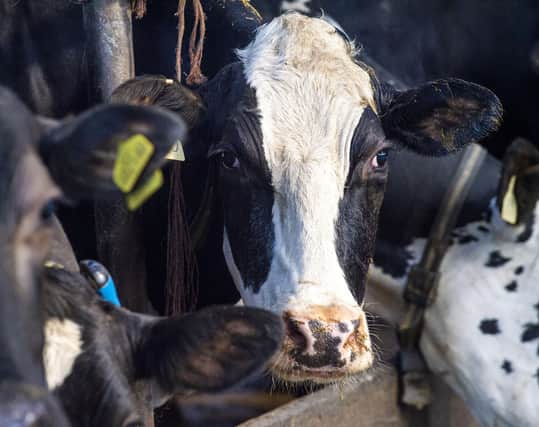Trade deals deserve better than Scotland’s half-empty glass - Brian Wilson


When the UK voted on the Common Market in the 1970s, one of the strongest arguments on the “no” side was against turning our backs on Commonwealth friends who would face ruin without preferential market access.
No such fate befell them. Instead, they looked to countries nearer home and the vast majority of Australian agricultural exports now go to China and the Pacific countries. One attraction of the trade deal is that it enhances our own access to these markets.
Advertisement
Hide AdAdvertisement
Hide AdNow we are told the roof will fall in on Scottish agriculture when we are “flooded” (c. I. Blackford) by Australian beef and lamb. On one hand, the deal is mocked for how little it is worth; on the other it is excoriated for the terminal damage it will inflict. Take your pick.
Incidentally, it is a bit ironic to hear Mr Blackford thundering about this latest doomsday scenario for farmers “and crofters”. Somebody should tell him the crofting system is disintegrating due to the near collapse of a regulatory system entirely within the powers of the Scottish Government. Australia is the least of crofting’s worries.
Fifteen years of phasing in a new trade deal seems a decent safeguard. Meanwhile, are there really no inherent opportunities for Scottish agriculture as there certainly are for other sectors? Is it a condition of Scottish political life that the glass must always be half-empty?
Then we have the “food safety” canard which always seems based on assuming that unwelcome foreigners habitually poison their own people. I heard a man from the Scottish NFU concede when pressed that the food on our shelves will be perfectly safe. Well, of course it will - so why set that hare running?
I voted to stay in the EU and deplore many impacts of Brexit. It is possible, however, to hold these positions while recognising that the EU was far from perfect and that directly negotiated trade agreements open up opportunities as well as challenges.
Scotland’s most important trading partner is the rest of the UK so let’s ensure that is not jeopardised by mindless politics. The EU accounts for a quarter of that share and there is no need to lose it. The biggest deficiency is under “rest of the world” which accounts for just 18 per cent of our trade. Might we not welcome efforts to address that?
There are plenty legitimate concerns about Brexit’s implications and diligent work is continuing in each sector to address them. In contrast, hyperbole does not enhance the credibility of those who portray everything linked to being outside the EU as an unmitigated disaster.
For example, I have no idea how it happened but exports of farmed salmon to the EU increased by 74 per cent in the first three months of 2021 compared to the same period last year. Margins were tighter and bureaucracy unwelcome but from a sector which might well have suffered, it was not a bad result.
Advertisement
Hide AdAdvertisement
Hide AdI suspect there will be more statistics over the coming months which point in the same direction. Where there is a willing seller and an eager buyer, barriers can usually be overcome. Then, as each doomsday prediction becomes discredited, a new one has to be found.
One place with post-Brexit issues of genuine seriousness is Northern Ireland. It is now more apparent than ever that Theresa May’s “backstop” was the best available answer to the border problem, once the decision to leave the EU had been taken.
That was rejected by MPs who refused to recognise that it was more important to find a solution than play politics. Their cynical or just plain stupid calculations opened the door to Boris Johnson and the back-stop became the front-stop, with the border enigma totally unresolved.
That experience alone should have taught a lesson that dealing with the post-Brexit world as it is would be a more useful option than the drone of ritual denunciation.